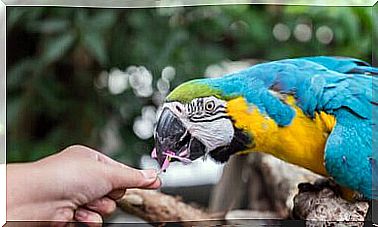The Dog Can Remember His Master’s Actions

Animals have a number of abilities that are often underestimated. Studies have shown that a dog can remember things his owner has done to him, even after a long time. In addition to learning commands and behaviors, these animals develop a certain mental harmony with their owners. In this article, we will show you some interesting aspects of dog memory.
A dog can remember practically anything

The intelligence of dogs is very powerful indeed. It goes far beyond simple daily necessities, such as when to ask for food or respond to commands or your name. Research carried out in Hungary shows that these animals, after a short training, are able to remember and reproduce the actions of their owners.
The only difference with human memory is that canine memory has a less extensive temporal capacity. People develop memories as early as the third year of age and keep them, incorporating and storing even very ancient information. Conversely, your dog is able to develop short and medium-term memory.
The prestigious journal Current Biology has described the research carried out in the Faculty of Ethology of the University of Eotvos Lorand, in Hungary, underlining an important element. Dogs have a human-like memory in relation to certain past episodes. The research director says the findings serve to break down a further barrier in the bond between humans and animals.
While it is true that pets are gifted with good intelligence, it is equally true that they possess mental abilities that were previously unknown. Despite a different evolution, we share a number of brain characteristics with these mammals.
Episodic memory in dogs
This type of memory is linked to the recollection of episodic events from the past. Unlike semantic memory, it is constituted and favored by a strong emotional lever that is triggered in very particular situations. In animals, the ability to encode and obtain information about a certain fact is considered to be “similar to episodic memory”. However, for the moment there are no studies showing that dogs are fully conscious at the time of memory formation.
Other studies, previously, had brought to light the ability of canids to imitate the actions of men (especially of their masters), even after 24 hours. The only condition is to enter a previous command to activate the repetition. By doing so, the animal is induced to attention and to memorize a specific gesture or movement.
For now, the study carried out by the Hungarian university has therefore shown that dogs have a semantic memory, which encodes a message (in this case, an order) and prepares a response (action or repetition).
It is still not possible to establish what the animal remembers what happened. We cannot ask him but, with the trick of imitation, we know that the dog is able to take memories on command, voluntarily, keeping them for a relatively short period of time.
How is the dog able to remember?

Scientists first taught dogs of different breeds to repeat simple human actions. For example, touch an umbrella. Subsequently, the animals were trained to lie down as soon as the owner touched the umbrella.
This ‘experiment’ alone is not enough to explain how memory works in dogs. However, it served scholars to verify the greater attention and propensity to memorization compared to actions performed by close people, such as owners or family members. Even in the absence of reward. In such imitation trials, the dogs lay down before receiving the order.
When the owners indicated that they should lie down if they touched the umbrella, they imitated the action shown above. Evidently, the success of the experiment increases the shorter the time span between demonstration and repetition. An hour after the first training, the initial movement was not followed by the animals.
This therefore shows that a dog is able to remember what his owner does, but only during a limited period of time.








